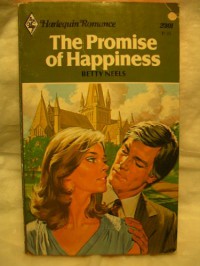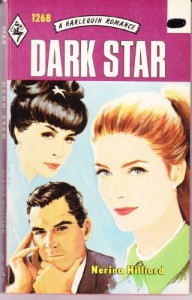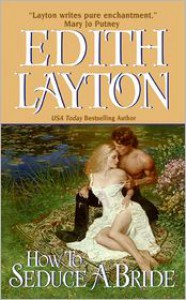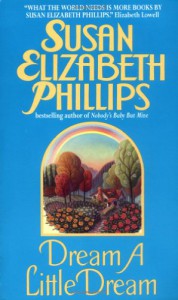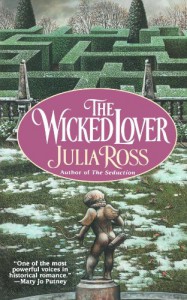An Old Passion, or "Love is a serious mental disease."

Do you remember that part in Disney's The Jungle Book where Kaa (brought to life by the very mellow, slightly Southern accented voice of Sterling Holloway) hypnotizes Mowgli in order to, well, eat him? That's very much like the reading experience I had while reading An Old Passion by Robyn Donald and, truthfully, like quite a lot of those old skool HPs. Like Kaa, they have their "subtle little ways" and before you know it, I'm humming "trust in me, just in me" just like Kaa.
An Old Passion is my latest adventure in HP Land, and it's the first Robyn Donald book I've read so I really wasn't sure what to expect. I'd heard things, but still there's nothing like first hand experience. It has so many of those not-so-subtle "little ways" that make HPs so fascinating: a particularly virulently violent alpha hero, angsty goodness, childhood friends to lovers, lovers reunited after a separation trope, a secret love affair, tons of jealousy, an unexpected pregnancy (yes, I say that with a straight face) a particularly annoying and pitiful other woman, way too many punitive kisses, several scenes bordering on forced seduction, a hint of a past forced seduction or outright rape, and a heroine who, for reasons unknown and not understandable to me, begins to make excuses and/or rationalizes the hero's emotional/physical abuse about half way through the book. Despite all the Harley cray cray, Robyn Donald is an excellent writer, and for reasons I'm still not completely sure of I kept reading and cackling madly. Mostly.
The bottom line for these two characters seems to be what happens when two people share an obsessive and destructive love/passion. Because Merrin Mowatt Sinclair and Blase Stanhope have that kind of relationship, one that I'm still not completely convinced will survive long term. My crystal ball is telling me that these two will have a team of lawyers and divorce decree looming at some point on the horizon or a team of lawyers defending one or the other against a first degree murder charge. Or failing that, multiple divorces/remarriages a la Liz Taylor and Richard Burton - constant bickering, making up, bickering again, divorcing, wooing and wedding, repeat and rinse. At any rate, I suspect there will be no matrimonial happy ever after pot of gold at the end of this rainbow.
In a nutshell, here's the background: Merrin has been in love with Blase since forever, and despite all the reasons they should not have, they begin a secret affair when she is 17 and he is 23. In Harleyland that's not that bad, nothing to raise the eyebrows to the hair level at all. But Blase is a pseudo "family" member much like an "older brother" to Merrin for much of their shared pasts, a person in authority as her "boss" as well as a "master/servant" relationship in the way she is subservient to him and his aunt. Merrin's position is one that straddles the internal class system at Blackrocks, being neither fish (not a true member of the family) nor fowl (not a true servant/employee) which leaves her vulnerably open to be exploited by someone in position of authority. Anyway, it's the unequal power dynamics that are so troubling. She was the orphan daughter of Blackrocks Station's head shepherd, lived in the same house as "almost" one of the family, and was employed by Blase as his "secretary-cum-housemaid."
Their secret affair gets the kibosh when Blase's cousin, Terry, steals the payroll to buy drugs and frames Merrin for it. He not only stages it so that it appears she gave him the money, but he makes it appear they were lovers. Which makes Blase well, very blaze-y. Merrin tries to tell him that she was watching TV with his aunt, went to her bedroom, discovered Terry putting the key to the safe back in the drawer she kept it. That the kiss he witnessed as well as Terry's damning "Thanks for the money, honey" was all a lie. Unfortunately, Aunt Hope lies to protect her son, Terry, about Merrin being with her, and just like that Blase is the injured party if you can believe it.
What follows is a week in hell for Merrin (beginning with "You little slut!" then seven days of intensely insidious physical and emotional terrorism inflicted on Merrin), an under-cover-of-darkness lucky escape on a bus, an "unexpected" pregnancy, an ill-advised marriage, sexual frigidity, alcoholism, physical violence, a miscarriage, a suicide, and an unhealthy dose of guilt, grief, and overwhelming sadness. I, for one, was glad she ran despite her tragic marriage to Paul Sinclair. After all, how long would Blase have continued with his "sadistic" cruelty and to what lengths it would have escalated doesn't bear thinking about. I do believe he raped her during that week. Phew! And that's all in Chapter 1. *humming* Trust in meeeeee.... Just in meeeee..... I can feel Kaa's coils creeping up, tightening all around me but am powerless to fight.
Following her year of hell, Merrin has been working as an assistant/secretary to a well-known writer, Ellis Kimber, famous for his best-selling thrillers for five years. In that time she has grown in confidence, poise, maturity, and is content, if not happy. Until Ellis announces they will be visiting an old college chum up in the Northlands, the owner of a place called Blackrocks Station, Blase Stanhope. Dun dun duuuuunnn.
One thing about these old Harleys especially the Presents line is that the titles very rarely, if ever, have the word "billionaire" in them and most of the titles are actually, you know, relevant to the characters and the story as well as being lyrical. I love seeing it's relationship to how the romance plays out. An Old Passion follows this tradition very well.
The phrase "an old passion" was taken from a poem by Ernest Dowson, "Non Sum Qualis eram Bonae Sub Regno Cynarae" ("I am not as I was in the reign of good Cinara" or so Google says.) aka "The Cynara Poem" for philistines like myself. Mr. Dowson borrowed his title from a snippet of Horace's Odes, and the poem also gave birth to the title of Margaret Mitchell's Gone With The Wind. But, fiddle-dee-dee, I'll think about that tomorrow. Blase references the poem first, after yet another of his diabolically cruel "private" conversations with Merrin in which he tells her three very important things:
1. He hates and despises her (yes, "hates" and "despises" are the word he uses.)
2. She was a fool to return to Blackrocks. Well, duh.
3. He would give a "a few years of [his] life to (...) indulge this degrading passion" to screw her silly until he is satiated, to "force" her body and brain "to give up every secret, to become nothing more than an instrument of pleasure" to him.
That's some sexy talk right there, isn't it? Rwar! Let me think about this a minute. With all those tenderly passionate inducements and words of love, why, she wouldn't even need Marvin Gaye crooning "Sexual Healing" to get her in the mood. Though another old song "He Hit Me (And It Felt Like a Kiss)" was rolling around in my brain. But it's not sex he wants here, it's control, power, revenge. He wants to reduce her to an object without a mind, without emotions. She would be no more than a blow-up sex doll to be used and discarded. Yeah, like that's a big turn on. And he follows up with a quote from Dowson's poem:
'Never anyone like you,' he said on a sigh, mouth twisted in cynical bitterness. 'Never since, never before. I look at you and like the poet said, I'm desolate and sick of an old passion.'
Oh, she knew how he felt, knew too the quotation, 'I have been faithful to thee, Cynara! in my fashion,' she whispered, knowing now that for them there could be nothing ahead but the ashes of the dead past.
He smiled, cruel mouth without humour. 'Oh, that, too,' he agreed. 'Like committing adultery, each time a nasty taste in the mouth.' (104)
And as is his usual modus operandi, Blase follows his version of sweet nuthins with a "crushing" kiss, overpowering and controlling her physically - a hand painfully tangled in her hair to hold her still, his other hand manacling her wrists, his body heavy on hers preventing any movement - until she stops protesting. He's very good at using his physical strength against her. I lost count of kisses that bruise, cut, and subdue; of the way he appears to hold her hand but is really purposefully and stealthily crushing her fingers until the tips turn white. He wants and needs to hurt her in all ways. Physical harm alone isn't quite satisfying enough, he has to verbally savage her, flail her with words - demeaning, degrading, dismissive, humiliating words. Just don't get me started on how many times he was lying in wait for Merrin in her bedroom or alone in a car or in a secluded spot at Blackrocks to show her exactly how little he thought of her, always using sex as a weapon.
So. I did not like Blase. At all. What a dick. In fact, if he was on fire, I wouldn't spit on him to put it out. But unbelievably this is where Merrin begins to excuse his behavior, to rationalize, to take the blame upon herself for his bitterness, his hatred, his thirst for revenge. Somehow she, the victim, is to blame. Again. And still those HP coils would not let me go.
Here's just a sampling of Merrin's mixed up thoughts:
He had been hurt, six years ago, wounded in some vulnerable part of him so much that he could still only cope with it by hating the innocent cause. Her return had opened the scar, releasing the poison of years. Perhaps after he had humiliated her enough he would be able to love again.
And yet, if she could see him love again, his wounds healed, she would go out of his life happy with that. She had not intended to hurt him, but perhaps it had been inevitable. He had always been possessive, and where there is jealousy there is pain.
It was Blase's self-esteem which had been shattered by what he believed to be her betrayal, and it had been further shattered when he discovered her marriage. (103)
Later, Merrin invokes Dowson's poem after Ellis reprimands her for not being merciful or compassionate or forgiving of Blase as he thinks she should be, and she rakes herself over the coals for holding out against Blase's onslaught. Let's just allow that to sink in for a minute.
What kind of hunger was this, this unbearable starving need? Strong enough to bind them together after six years, consummated not just once but scores of times over a year, and yet still it was not satisfied. (...) Merrin turned her head into the pillow, remembering the lines:
'I cried for madder music and stronger wine,
But when the feast is finished and the lamps expire,
Then falls thy shadow, Cynara!'
Perhaps Blase was right. Perhaps they should become lovers once more in the hope of ridding themselves of this degrading passion, for degrading it was. No greater shame could be imagined than to love a man who not only despised her but despised himself for wanting her. (165)
After all this, you might have thought I would have pitched this lovely little piece of misogynistic claptrap and victim shaming/blaming against the wall. But I didn't. It shames me to admit that I kept turning pages faster and faster. Trust in me, just in me... I had to get to the bitter end to see if/how this crazy train was going off the rails or not. I had to get to that happy part of HP Land, if there was going to be one, where all conflicts are resolved, where the future looks, if not bright and happy, at least hopeful, where the dick hero pulls that secret weapon from his hip pocket - THE BIG GROVEL - to convince poor HP heroine that he loves her, wants her, that he's abjectly sorry for putting both of them (but mostly her) through hell. Yeah, I'm still waiting for that to happen. I am not hopeful. I am not convinced he loves her or she him. There was no BIG grovel. At all. But I am finally awake and conscious and free of Kaa's, er, An Old Passion's mesmerizing cray cray and running for the hills.
And what of love and happiness for Blase and Merrin? Well, in the words of an immortal philosopher "What's love got to do with it?" Blase admits that he would have "killed" her if he'd been the one to find her after her when she ran. Thank God for private detectives. How's that love in any form or fashion? I hope Merrin gets the counseling she needs desperately. And Blase? Well, I would love to kick his ass into Tuesday, but maybe Amazon has an Illudium Q-36 Explosive Space Modulator just like Marvin the Martian's. Zap!
 2
2
 2
2



